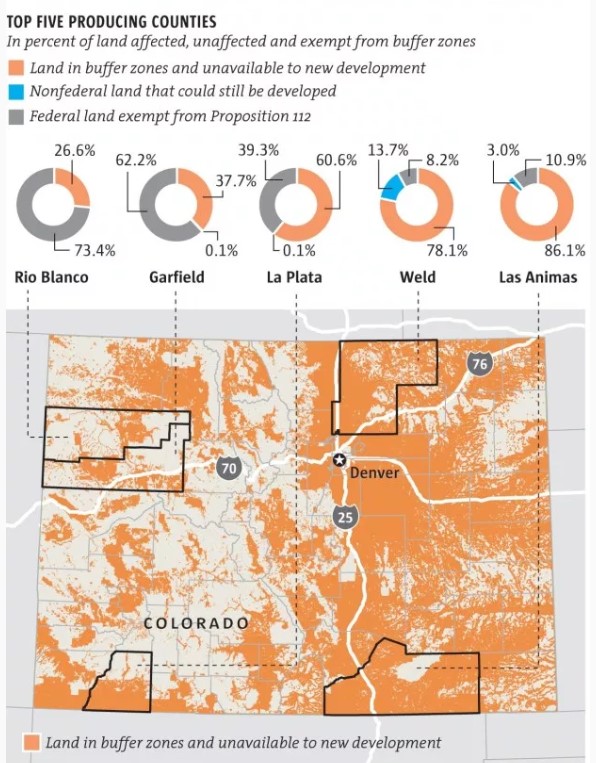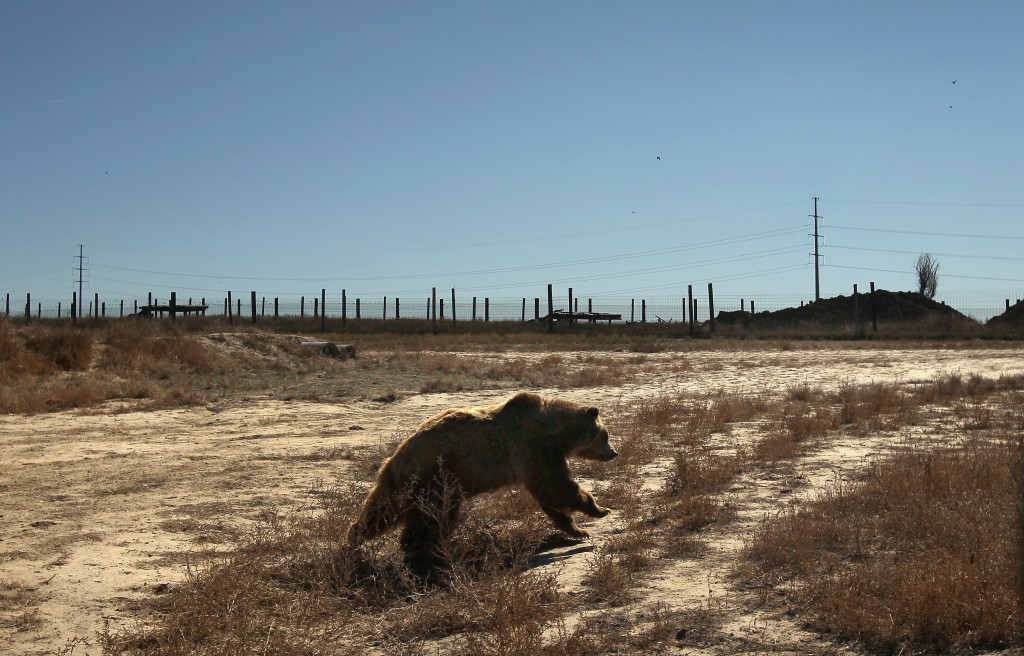In an editorial this week, Colorado’s largest newspaper announced strong opposition to Proposition 112, the anti-progress, anti-energy ballot measure that could put 85 percent of non-federal land off limits to natural gas and oil production in the nation’s fifth-leading natural gas and seventh-largest oil producing state.
The Denver Post editorial urges voters to vote no on Proposition 112, arguing that requiring natural gas and oil operations to be 2,500 feet from “vulnerable areas” would be a severe blow to state energy production, jobs and economic growth. A graphic that was published with the editorial:

The Post editorial:
Public open spaces, irrigation canals, perennial or intermittent streams are defined as “vulnerable areas” in the ballot language, meaning that a dry creek bed that flows only during a heavy rain would suddenly have a 450 acre no-drill zone around it. The effect of that would be a ban on oil and gas exploration of Colorado’s Denver-Julesburg Basin. That’s the area in northeast Colorado where most of the state’s drilling activity is occurring. With such a ban would come an exodus of oil and gas companies from the state, the high-paying jobs they create directly and indirectly, and the taxes they pay to state and local governments.
The newspaper said it hasn’t “seen evidence that oil and gas activity is the kind of unmitigated threat to health and safety that would merit a ban” such as the one posed by Proposition 112.
At the same time, as we’ve pointed out, the measure could result in significant losses of jobs, economic support and annual public revenues. A report by the Colorado Oil & Gas Conservation Commission found the proposition could stifle hundreds of thousands of jobs directly and indirectly supported by natural gas and oil – more than 230,000 of them currently. Industry today contributes $31.4 billion in economic impact per year, including more than $1.2 billion in annual public revenue. Another report, by the Common Sense Policy Roundtable, estimated Colorado could lose 100,000 jobs and more than $1 billion in tax revenue by 2030.
The Denver Post editorial noted that a 2017 study by the state’s Department of Public Health and Environment said that under current setback requirements there was no immediate need for a public health response and urged more study. It said Proposition 112 is no way to address reasonable concerns:
It is an overreaction and we hope Coloradans reject it.
Colorado Petroleum Council Executive Director Tracee Bentley:
“Our industry’s top priority is the health and safety of the communities in which we work and our employees. We are committed to continuing the conversation about safe and responsible energy development with stakeholders from across the political spectrum, but this proposal would not achieve those goals. Every Coloradan should be prepared to soundly reject this proposal.”
By Mark Green
Originally posted October 11, 2018
Energy Tomorrow is brought to you by the American Petroleum Institute (API), which is the only national trade association that represents all aspects of America’s oil and natural gas industry. Our more than 500 corporate members, from the largest major oil company to the smallest of independents, come from all segments of the industry. They are producers, refiners, suppliers, pipeline operators and marine transporters, as well as service and supply companies that support all segments of the industry.

